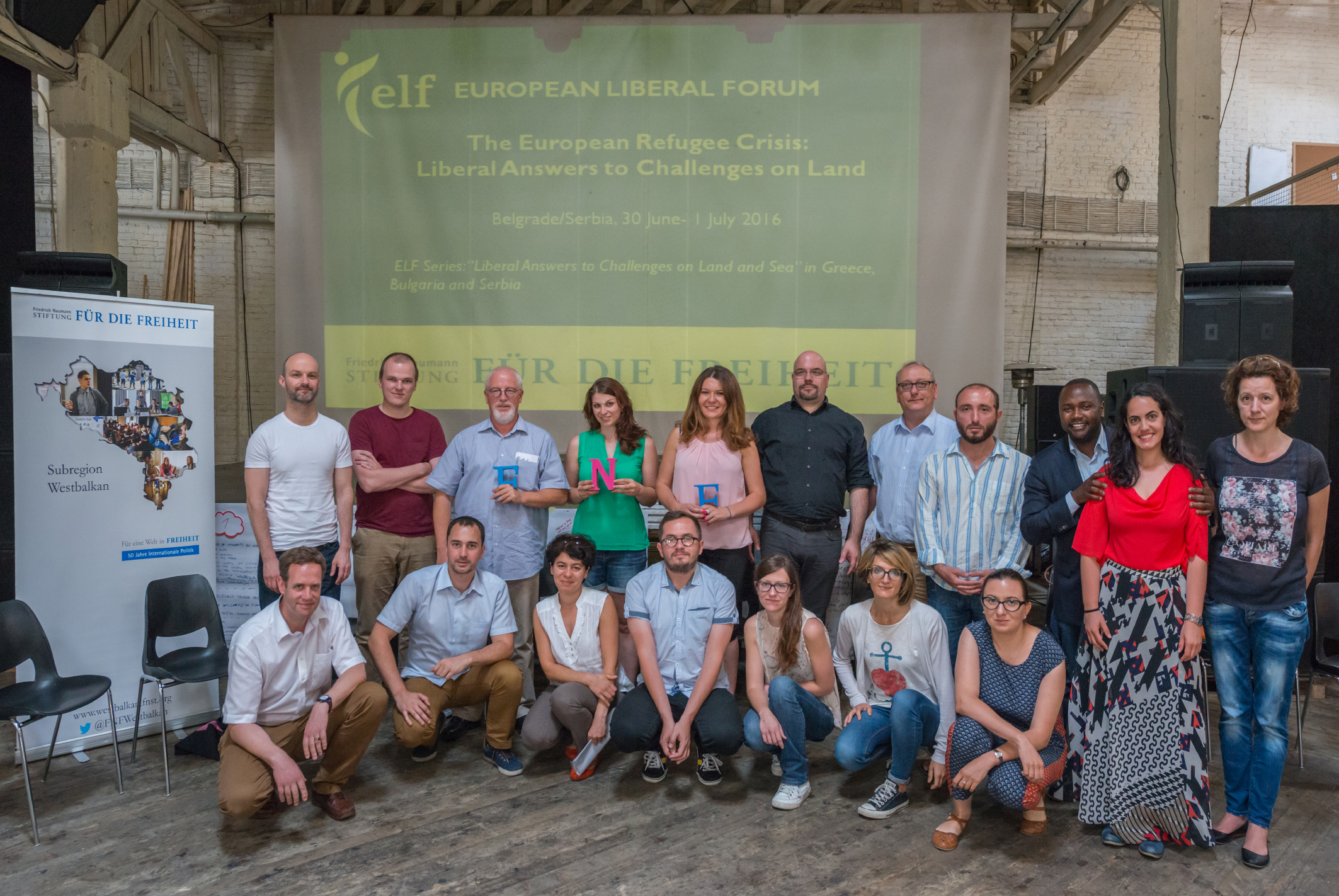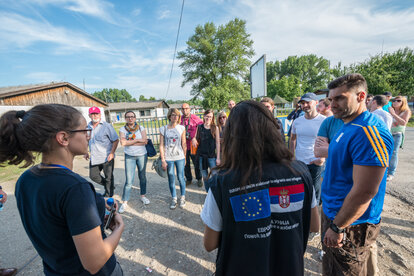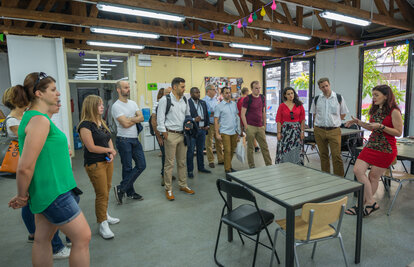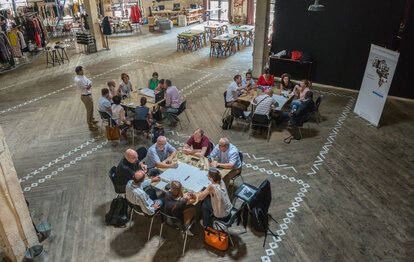The European Refugee Crisis: Liberal Answers to Challenges on Sea and Land

How could Liberals best respond to the challenges of the refugee crisis? The three-tier-project financed by the European Liberal Forum (ELF) and supported by FNF followed the refugees on their path from Lesbos/Greece via Sofia/Bulgaria to Belgrade/Serbia. The app 20 participants had a chance to get a first-hand insight into refugee facilities, talk to state officials and civil society actors.

“Currently the refugee camp is nearly full: around 470 people are living here” says Dajena Ristic, coordinator of the Krnjaca Refugee Facility. The sun is burning, small children are curiously looking at the 20 strangers who just arrived per bus from Sofia. “We take in everyone, with or without papers”, adds her colleague Milutin. Since the Western Balkan Refugee trail was factually closed, refugees cross the border between Bulgaria and Serbia illegally. “These people are most vulnerable, especially when they have to sleep in the park in the Centre of the city”, thinks Dajena. At Krnjaca there is a 24/7 shift, refugees come day and night. But the camp’s barracks, having been built for construction workers in the 60’s and later on used for refugees from the wars in Yugoslavia in the 90’s have not changed much. And the camp is remote from the city – an estimated walking distance of two hours from the centre of the city. “That’s why we provide busses twice a day” to help them. Refugees in camp Krnjaca mainly come from Afghanistan, Pakistan, Syria, Somalia, Morocco and Algeria. “Refugees who seek asylum sometimes wait for months, because the police in the centre of the city look thoroughly at every case.” Most of the camp’s inhabitants want to move as quickly as possible to Germany. Those who stay spend their time with self-styled activities such as cricket not to get depressed. The European Union is financing the bulk of the camp’s costs. A small stand of Caritas displays clothing donations. “We will expand. This camp could be enlarged so to take in 900 refugees” believes Milutin.

“Today is our last day”, says Tajana Zadravec from Miksaliste Refugee Aid Centre. Miksaliste is the only Refugee aid centre which came into being through a civil society initiative. This new center was opened one month ago, now the neighbours put enormous pressure on the local government and the owner of the facilities of Miksaliste. The neighbourhood claimed to feel threatened and unsafe and their pressure on the refugee centre’s activities became unbearable. The centre which was preceded by a similar refugee spot provides medical help, food and clothes. “Refugees want shoes”. And we never have enough. Two hundred pairs of shoes are gone within one day. With our team of volunteers we provide each day 600 portions of food (breakfast-lunch-dinner). Miksaliste clearly reached its limits. But something has changed: while one year ago when the refugee crisis unfolded the state ignored this initiative Zadravec has the impression that now state authorities including the commissariat for refugees and migrants could be part of the solution. The volunteers of Miksaliste have not abandoned their dream to evolve into a fully-fledged integration centre with language courses and a restaurant, but its fate remains unclear.

At the closing World Café Session on “Responding to fears and developing creative solutions for integration” programme’s participants discussed possible liberal approaches. What is the meaning of integration? Wouldn’t it be more sensible to talk about participation? How does the majority population react towards the stranger? How shall fears best be addressed? Liberals look at the lowest possible level for decision making and believe in the individual taking responsibility for its actions. But how to respond to newcomers who grew up in traditional societies where dissent from collective views is seen as a menace? Apart from these problems it is evident that the refugees who made their way along the Western Balkan Route are willing to adapt. But change is not a one-way-street. Thus Refugees will change the societal landscape in Europe and it is upon Liberals to become an active player in this process.
Charles du Vinage, Project Director of FNF Western Balkans
For photos from the visit: